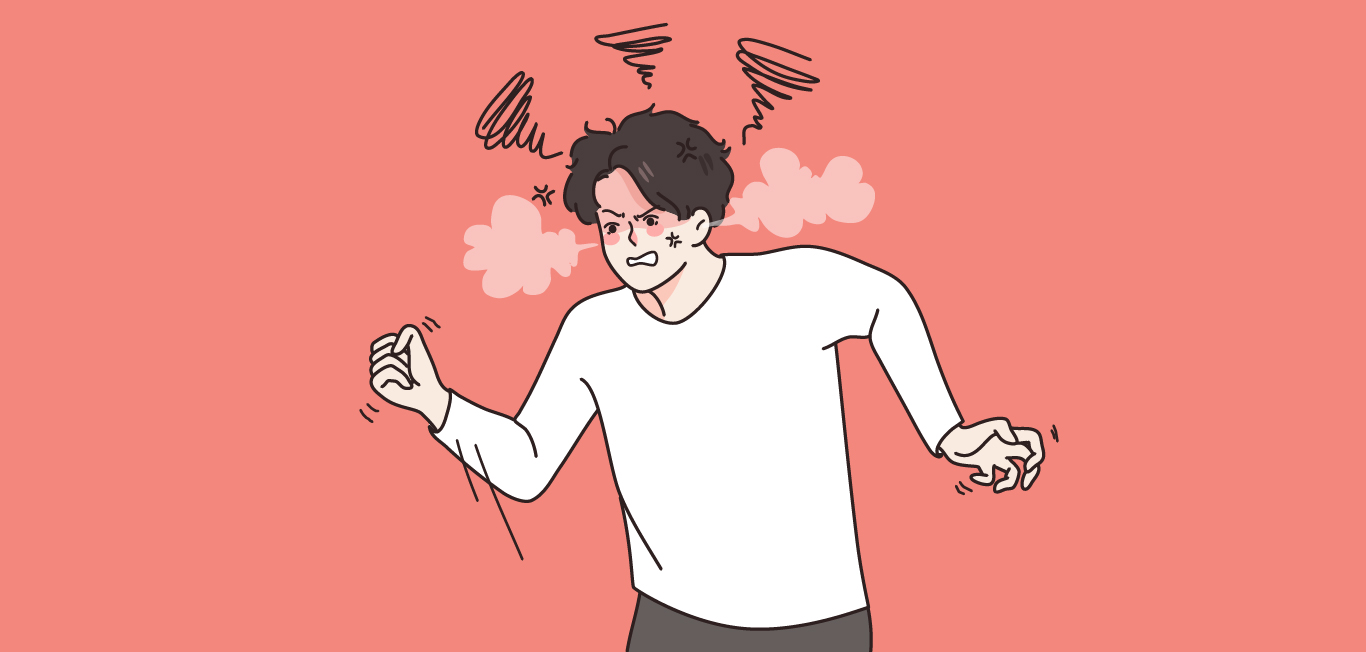
How often have we not frowned at the computer downloading slowly, groaned as the traffic signals turned red on seeing us, or tut-tutted when an urgent phone call would not go through?
Irritability. Annoyance. Grumpiness. Ill-temper. Grouchiness. In sum, it is that feeling of agitation – or intolerance laced with impatience and anger – that surfaces in us over minor inconveniences; and often, its after effects unfairly hitting us and the rest around us.
Probably no one is completely immune from this feeling. And when it wells up, is it normal? Or should one worry about it?
“I used to get irritated by the simplest of things for a long period of time,” says Guwahati-based social worker Monica Barman. She confesses that she reached a point where even positive things could not please her. “I would be plain irritated most of the time.”
Bengaluru-based counselling psychologist, Arouba Kabir, calls irritability normal if one experiences it temporarily when an unpleasant event triggers it. “However, being irritated constantly can be related to psychological conditions which need to be addressed by a mental health practitioner.”
Understanding the causes
“Irritability doesn’t have a single cause but a spectrum of causes,” says Dr Shivarama Varambally, psychiatrist, National Institute of Mental Health and Neurosciences (NIMHANS), Bengaluru. Irritability is a symptom rather than a pathological condition or a diagnosis. It is usually a sign that the person is bothered about something that is not how they want it to be.
Kabir and Varambally separately list several psychological conditions that can be associated with irritability:
- anxiety disorders
- depression
- bipolar disorder
- schizophrenia
- schizoid and schizotypal personality disorders
- substance abuse
- giving up smoking and alcohol
- side effects of narcotics and long-term medical issues
- hormonal changes and mood swings
Hormones and mood swings
Then there is the case of Sahana Ahmed, a 23-year-old student from Guwahati. She says people around her often labelled her `moody’ as she irritated people around her when her period was approaching. She would feel guilty and frustrated about it. That was until she read about pre-menstrual syndrome or PMS.
“I never thought that hormonal imbalance would be influencing my behaviour,” she says. Once she understood the reason for her irritability, she consulted a gynaecologist. Ahmed says she now relies on holistic ways to manage PMS – among them exercise and meditation – which have helped her to become less irritable.
Signs of distress
According to The British Journal of Psychiatry, severe irritability can be extremely distressing for the person experiencing it, their friends and family, and sometimes even those attempting to treat or help them.
According to Varambally, these are a few symptoms of irritability.
- Racing heartbeat
- Fatigue
- Loss of concentration and focus
- Sweating Getting annoyed or angry quickly
- Tension
It is not necessary that the person experiences all the symptoms together.
Identifying the triggers
According to Kabir, one’s behaviour can be diagnosed as irritability when one gets agitated every day. If it is chronic or lasts over a long period, it might indicate an underlying condition. Professionals conduct tests and quizzes to determine the condition and its triggers. Fear, concern, and impatience are a few mood-related symptoms that can be helped by professional counselling.
Kabir says treatment options depend on the symptoms and the underlying reason for irritation. “Hormone therapy is one of the treatments for hormonal abnormalities, along with dietary and lifestyle modifications for the management of irritability due to these causes,” she says.
Monica Barman, the volunteer from Guwahati, did not know what to do with her bad temperament until she realised one day that her relationship with her family was getting worse. “I immediately made an appointment with a psychiatrist and sought her help.” She was diagnosed with depression. “The medications and therapy with help of experts have helped me to become less irritable over the years and I have been able to lead a happy life,” she recounts to Happiest Health.
Kabir and Varambally say the affected person should seek professional help when a few warning signals, such as:
- irritable emotions become overpowering;
- irritability starts interfering with and obstructing one’s daily activities; and when they start harming one’s relationships with other people.
Psychologist Arouba Kabir has a few words of advice for those who frequently get annoyed by minor issues.
It is not possible to always have control over one’s emotions, so one should not be self-critical or guilty of getting irritated at times. Instead, one can try to acknowledge and feel such emotions, analyse them and get any help if necessary. More importantly, seeking help is, in fact, a brave move.

















